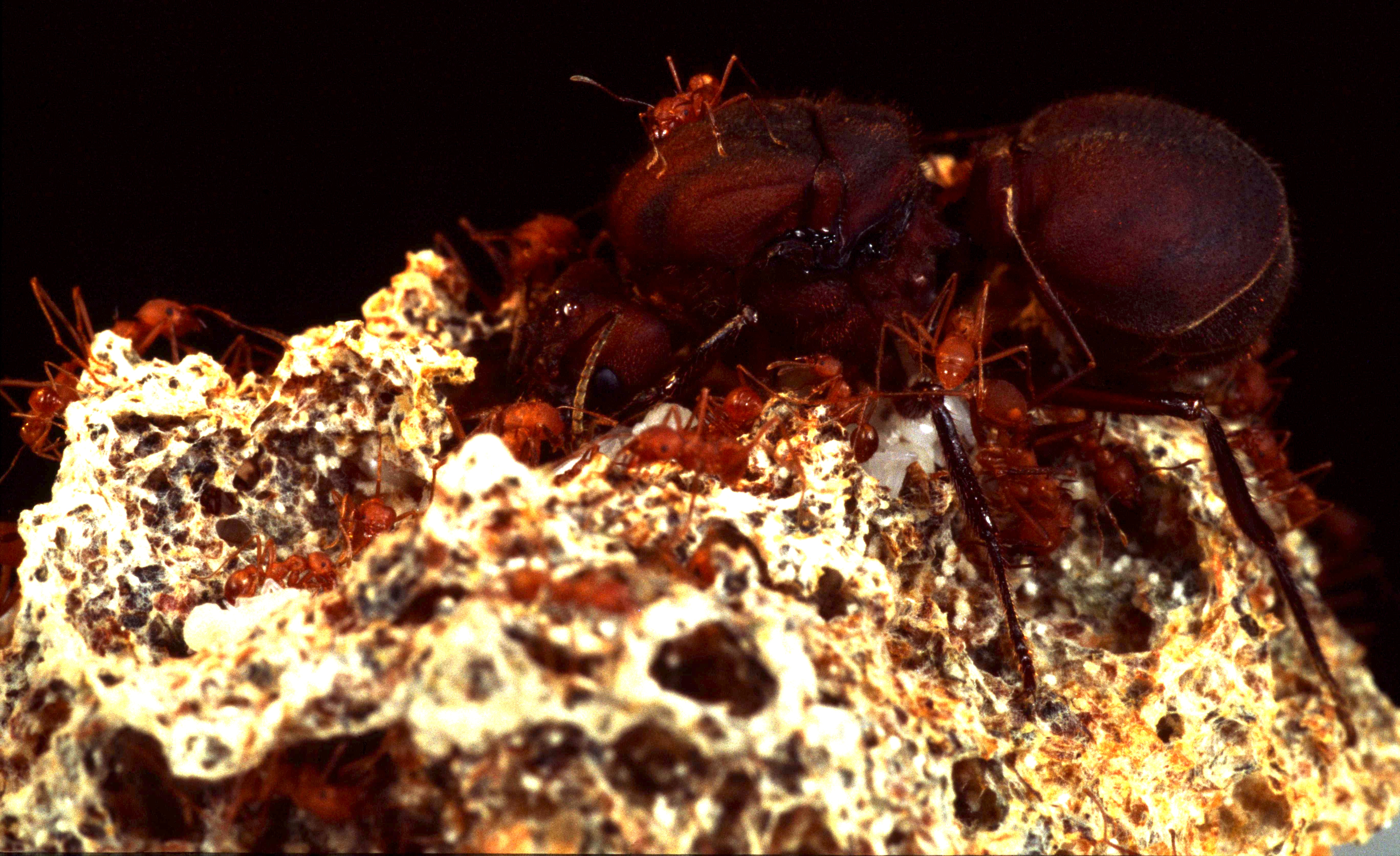
As you watch this video of an abandoned ant hill that was preserved with concrete and excavated, take a moment to marvel at the wonder that is the ant. They are the most numerous animal on Earth, and may represent as much as 25% of the animal biomass on the planet. There are ant species thriving in all but the most remote habitats. In addition to feats of engineering (of which this hill is not even an extreme example), their complex societies engage in agriculture, education, and warfare.
Now, consider the classic watchmaker question, about what conclusions you would draw about a watch you found on the beach, and how it came to be there. While this ant hill doesn’t feature anything nearly as complex as clockworks, I think it’s fair to reflect on what inferences you would make about any intelligence involved in it coming into being. If nothing else, I think such questions tell us a lot about what we mean by and what we assume about intelligence, and possibly human uniqueness.
Furthermore, I think they can reveal something about our attitudes and assumptions regarding autonomy. Were the ants involved in building this colony acting independently? From what we can tell, each ant is following fairly simple instincts or engaging in simple behaviors in response to their local environment. No single ant seems to be thinking “Let’s build a colony that looks this way” and orchestrating the overall construction. And yet clearly the end result requires that the ants behave in a way that at least resembles coordination; they can’t all go off and do anything they fancy. Does the lack of central oversight and freedom to fulfill their various purposes as they see fit in their specific context mean that the ants are autonomous? Or does the fact that they had to work together and carry out predefined roles make them automatons? (And don’t rule out the possibility that I just created a false dichotomy.)
As Americans, we don’t generally like being told what to do. We’ve fought at least two wars to settle questions about just how far one group is allowed to go in telling another group what to do. We celebrate individuality and independence, from our founding fathers to the cowboys of the Wild West; we are even oddly fascinated with gangsters like Al Capone and Vito Corleone, respecting their self-determination even as we punish their illegal activities. We defend and demand our individual rights, and have high expectations of privacy even as we exercise the freedom to tell anyone who will listen the most minute details of our lives.

And yet, as we celebrate Thanksgiving this week, we have the opportunity to be reminded of a facet of the American mythos that doesn’t quite align with those values. The traditional narrative of the holiday tells us we are commemorating the Pilgrims’ first harvest in Plymouth after a harsh winter and uncertain first year. The Native American known as Squanto features prominently as a source of invaluable wisdom on how to make the most of the resources Massachusetts had to offer. It is usually said that the Plymouth Colony wouldn’t have survived without that indigenous assistance.
Now granted, reality may have been more complex (just because it usually is), and English and European colonization of North America would almost certainly have continued unimpeded even if Plymouth Colony had failed. But the Pilgrims of Plymouth, and especially their Puritan contingent, loom large in American culture and ethics, and I think it is significant that we continue to tell the story of Squanto as part of our national history.
I also don’t think it’s a total coincidence that the observance of this holiday was finally codified within days of the Gettsburg Address, which reframed the establishment of the United States as an extension of the independence movement. Characterizing the succession of the South as an illegitimate rebellion, rather than a justified expression of independence in the spirit of the revolution, required a concept of the United States as a cohesive, interdependent whole rather than a voluntary association of autonomous entities.
But again — is this really a dichotomy? Is it possible to voluntarily enter into an interdependent relationship? Do you diminish your autonomy if you acknowledge that the best possible outcome requires contributions from others, and act accordingly? Are the freedoms that we value most defined by what they free us from, or what they free us to?
Newton famously stood on the shoulders of giants when he made his sizable contributions to mathematics and physics. Although we tend to celebrate individual scientists, science is inherently collaborative, iterative, and communal; other intellectual pursuits are no different. So why are we so quick to imbue a single watchmaker with the intelligence necessary to create a watch? Clockwork mechanisms have developed over centuries. Mining metal from the earth and refining it to be suitable for use in such mechanisms represent completely separate skills. The inspiration for such mechanical clocks goes all the way back to sundials; thus some germ of the idea for the clock is actually a representation of the earth’s rotation.
So if you find a watch on the beach, or an underground city occupying hundreds of acres, does it make sense to assume an intelligent watchmaker? Should one instead assume the intelligence of an entire civilization? And if you find an entire civilization, what can you infer about the forces that shaped it?
I think I am beginning to understand why Proverbs admonishes us to look to the ant.
Andy has worn many hats in his life. He knows this is a dreadfully clichéd notion, but since it is also literally true he uses it anyway. Among his current metaphorical hats: husband of one wife, father of two teenagers, reader of science fiction and science fact, enthusiast of contemporary symphonic music, and chief science officer. Previous metaphorical hats include: comp bio postdoc, molecular biology grad student, InterVarsity chapter president (that one came with a literal hat), music store clerk, house painter, and mosquito trapper. Among his more unique literal hats: British bobby, captain’s hats (of varying levels of authenticity) of several specific vessels, a deerstalker from 221B Baker St, and a railroad engineer’s cap. His monthly Science in Review is drawn from his weekly Science Corner posts — Wednesdays, 8am (Eastern) on the Emerging Scholars Network Blog. His book Faith across the Multiverse is available from Hendrickson.

Leave a Reply